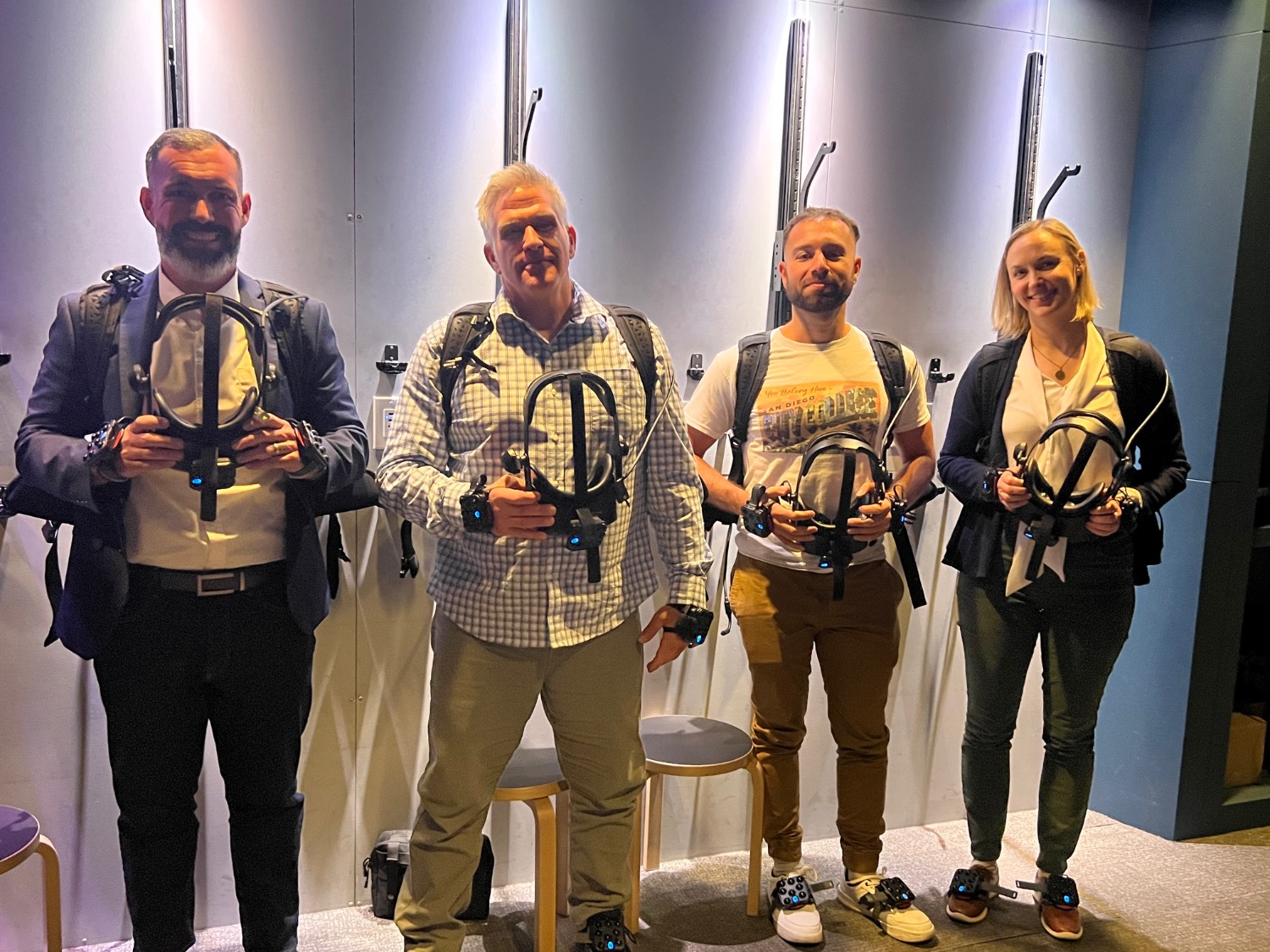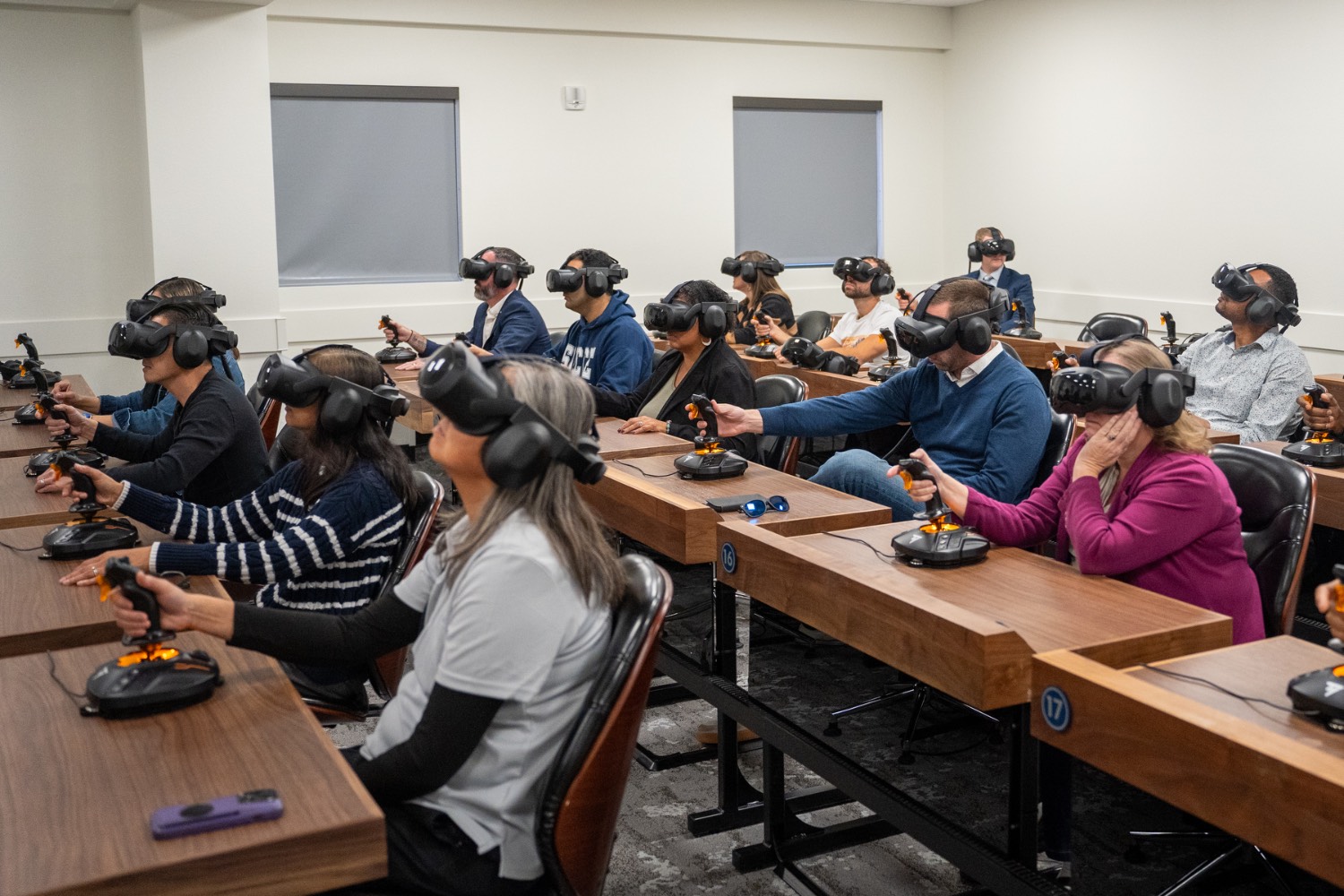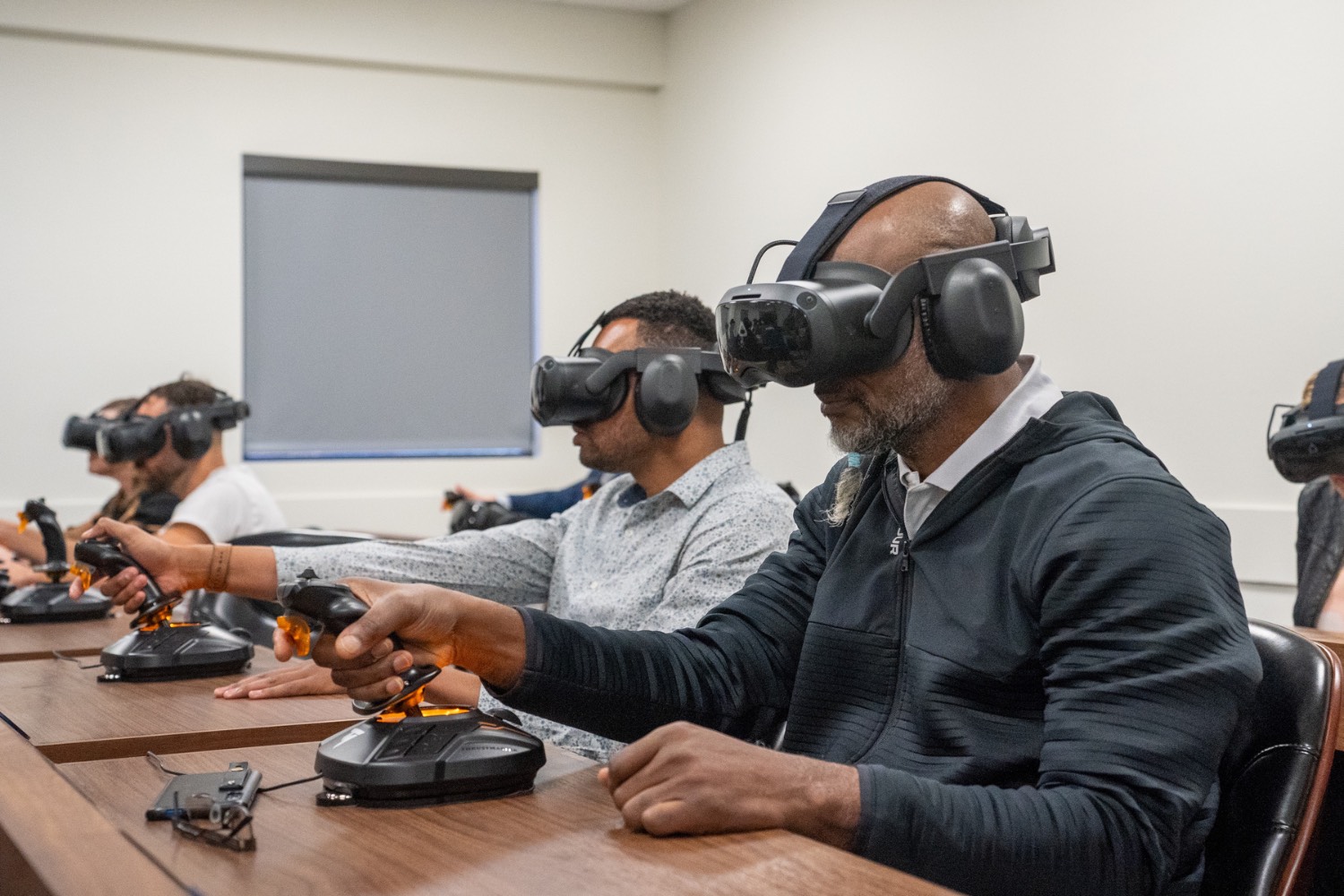
Led by Chancellor Gregory Smith, who first got a feel for the “education through exploration” experience in mid-2023, and Dr. Michelle Fischthal, vice chancellor of Innovation and Effectiveness, the visit provided an opportunity to experience how immersive technology can transform education. Through hands on participation, the group gained insight into how VR can enhance learning by engaging students in interactive, story driven environments that reinforce concepts in new and compelling ways.
The SDCCD group, with representatives from each college and the District Office, ran through three different classroom lab modules where each person was seated in a haptic chair with a VR headset and joystick that enveloped them in experiential stories. The modules included an Alien Zoo where participants had to run tests and make diagnoses on the animals; along a forest river where they had to collect and test for chemical elements among water samples; and in Istanbul, Turkey, where they explored and learned about the history, art, architecture, and religious significance of the Hagia Sophia mosque.
Said Miramar College Assistant Professor Tanya Hertz of the experience: “It connects emotion with logic. It was a lot of fun.”
Additionally, SDCCD participants were provided the opportunity to take part in free-roam stories both on an alien planet and deep in the ocean. These fully immersive experiences meant donning hand and feet sensors, a backpack, and VR headset, which allowed multiple people to engage in the story together.
The Dreamscape Learn experience goes farther than just being fun. Data collected at ASU for the past four years after implementation shows that students who participated in biology labs featuring the VR platform were twice as likely to receive an “A” in the class. Median class grade averages increased from 87% in traditional lab classes to 96% in Dreamscape Learn courses.
Beyond what was experienced at ASU, “I could see using it to simulate emergency situations where, in welding in particular, mistakes could be catastrophic,” said College of Continuing Education College of Continuing Education Interim Dean of Adult Secondary Education and welding instructor Bradley Dorschel, who noted that dealing with volatile gases in the classroom leaves no margin for error.
While no decisions have been made about incorporating this technology at SDCCD, the visit provided insight into how immersive learning could enhance engagement and potentially deepen learning and improve student outcomes. At the same time, there is the recognition that the District needs to consider accessibility, scalability, and integration into existing educational infrastructure.
We look forward to thoughtful discussions on innovative ways to engage students and increase student outcomes while ensuring equitable access to emerging technologies.

